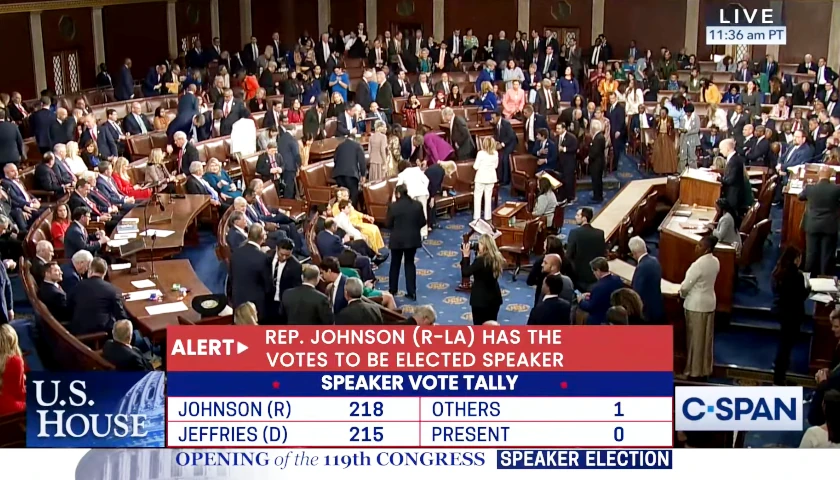by Eric Lendrum
When measured by the number of bills passed and signed into law, the current 118th session of Congress was the least productive in modern history, passing fewer laws than any other session since the 1980s.
As Axios reports, the data on the number of bills passed was compiled by the public affairs firm Quorum, which determined that less than 150 bills were passed in the two years spanning from 2023 to 2025. By comparison, the previous Congress – the 117th Congress, from 2021 to 2023 – passed 350 bills. Every Congress since 1989 has passed an average of 380 bills into law.
Prior to the 118th Congress, the least productive Congressional sessions of the last 36 years were the 112th, the 113th, and the 104th sessions; the 112th and 113th were during Obama’s presidency between the years of 2011 to 2013 and 2013 to 2015, respectively, while the 104th Congress was under Clinton’s presidency, from 1995 to 1997. The 112th Congress passed 270 bills, while the 113th Congress passed 280 bills, and the 104th Congress passed 310 bills.
Split-party control between the White House and Congress has been blamed as the primary reason for the low-productivity sessions of Congress, with Democrats criticizing it as Republican obstructionism while Republicans defend such sessions as curbing government power.
The incoming 119th Congress will see unified Republican control of government for the first time since 2017, and will thus put the GOP to the test of proving that it is a party capable of governing. Speaker of the House Mike Johnson (R-La.) has vowed to support the agenda of President-elect Donald Trump, although Johnson faces a razor-thin majority of 220 seats, just two seats above the minimum threshold for a majority in the House of Representatives. There has been speculation that Johnson may face opposition in his bid to be re-elected as Speaker, which could lead to a drawn-out process like the 2023 Speakership race, where Kevin McCarthy (R-Calif.) only became Speaker after 15 rounds of voting.
The GOP also managed to win a 53-seat majority in the U.S. Senate, producing a similarly small majority that may lead to contentious votes on several of President-elect Trump’s Cabinet nominees.
– – –
Eric Lendrum reports for American Greatness.





